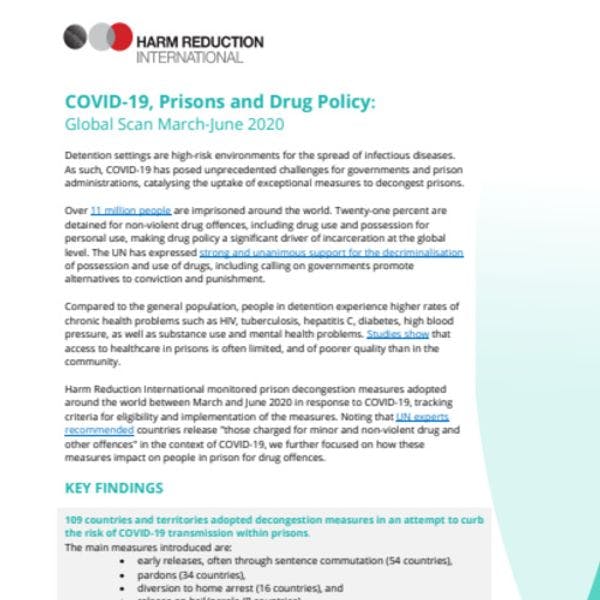COVID-19, prisiones y políticas de drogas - Monitoreo mundial
HRI considera que las medidas de descongestión en prisiones se quedan cortas frente a los compromisos asumidos en nombre de la salud pública. Más información, en inglés, está disponible abajo.
Detention settings are high-risk environments for the spread of infectious diseases. As such, COVID-19 has posed unprecedented challenges for governments and prison administrations, catalysing the uptake of exceptional measures around the world to decongest prisons.
According to Penal Reform International, over 11 million people are imprisoned around the world. Twenty-one percent are detained for non-violent drug offences, including drug use and possession for personal use, making drug policy a significant driver of incarceration at the global level. The United Nations (UN) has expressed strong and unanimous support for the decriminalisation of possession and use of drugs, including calling on governments promote alternatives to conviction and punishment.
Compared to the general population, people in detention experience higher rates of chronic health problems such as HIV, TB, hepatitis C, diabetes, high blood pressure, as well as substance use and mental health problems. Studies show that access to healthcare in prisons is often limited, and of poorer quality than in the community.
Harm Reduction International monitored prison decongestion measures adopted around the world between March and June 2020 in response to COVID-19, and found evidence of such schemes in 109 countries. We tracked criteria for eligibility and implementation of the measures. Noting that UN experts recommended countries release "those charged for minor and non-violent drug and other offences" in the context of COVID-19, we further focused on how these measures impact on people in prison for drug offences.
